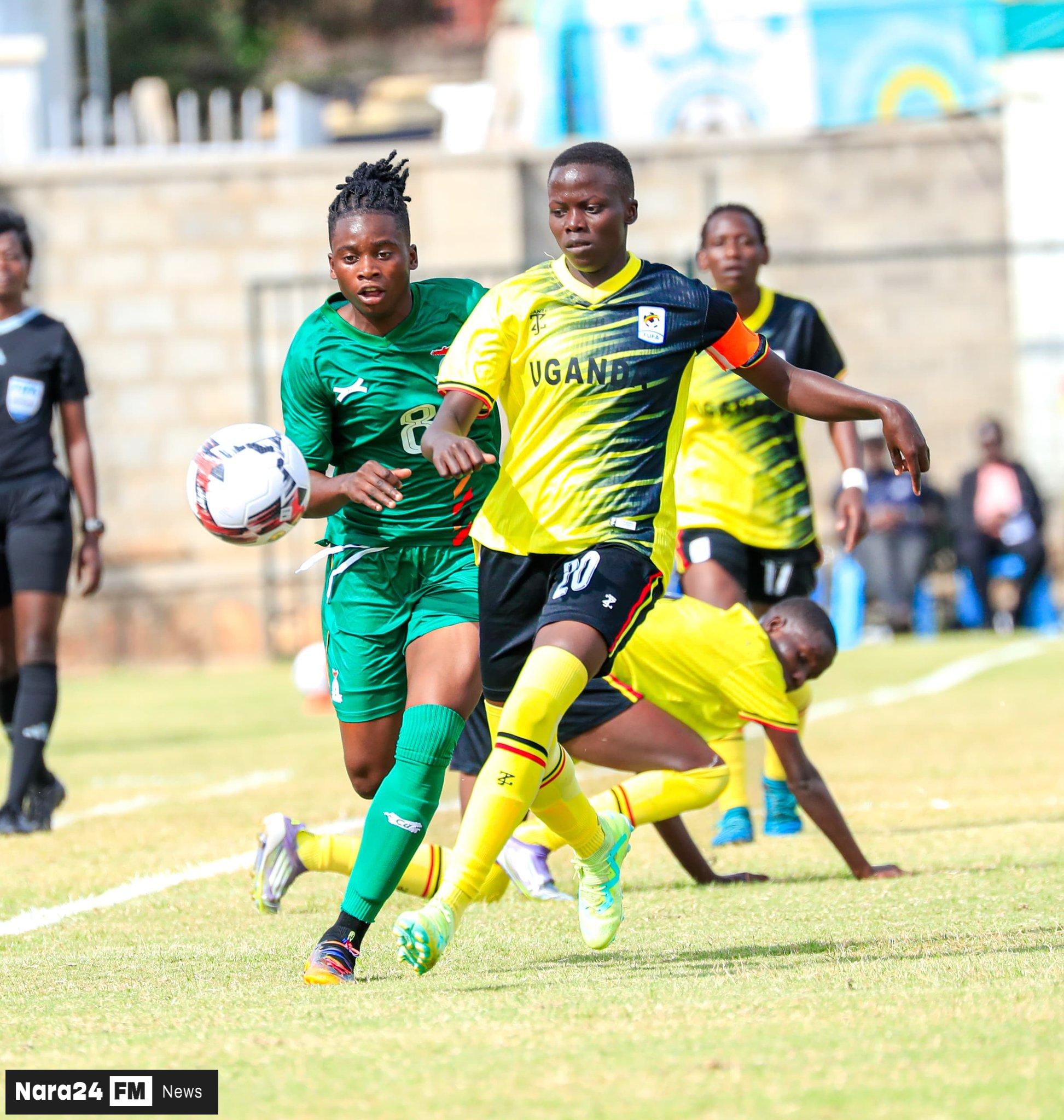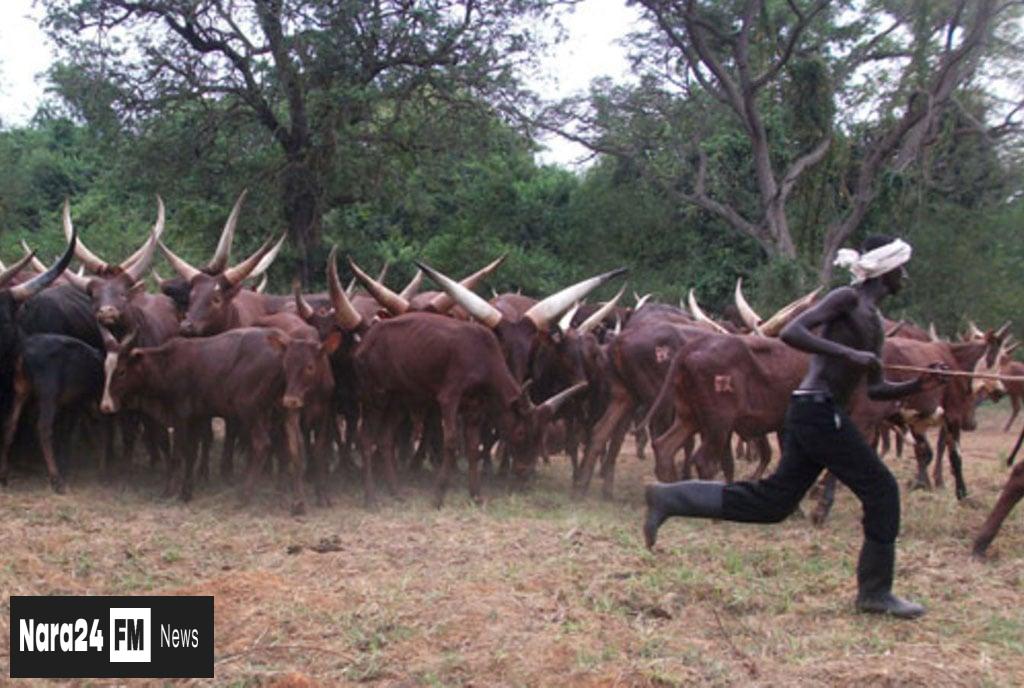
Uganda's U20 Women's Team Advances to Final Qualifying Round with Win Over Zambia
Uganda's U20 women's team has booked a place in the final qualification round of the FIFA U20 Women's World Cup by defeating Zambia.
Ugandan President Yoweri Museveni has issued a directive banning the unregulated free-range movement of Balaalo cattle herders into Northern, Eastern, and North-Western Uganda, citing the practice as detrimental to the local communities and the economy.

Ugandan President Yoweri Museveni has taken a decisive action against the Balaalo cattle herders, issuing a ban on their unregulated free-range movement into Northern, Eastern, and North-Western Uganda. The directive, Executive Order No. 2 of 2025, dated June 1, is a response to a long-standing issue that has caused widespread resentment in host communities.
The order follows Executive Order No. 3 of 2023, which aimed to regulate pastoral migration, but now imposes a total ban on unregulated cattle movement and seeks to criminalize the practice in law. In the 9-page order, President Museveni argues that the Balaalo's free-range grazing is "criminal and unfair to the locals" as it leads to crop destruction, land disputes, and internal conflicts.
The President cites four main reasons for the ban: the lack of fenced grazing areas and permanent water sources, unresolved land tenure disputes, unregulated fencing that blocks access to vital natural resources, and unfair crop destruction. The enforcement of this order will commence with joint operations involving district officials, law enforcement, and land boards.
While Balaalo leaders have yet to respond, previous attempts to remove their cattle have met with resistance and calls for compensation. However, President Museveni has made it clear that there will be no tolerance for further delays or excuses.
The Balaalo, predominantly cattle-keeping communities from southwestern Uganda, have for years migrated into northern and eastern regions in search of pasture and water. Their presence has resulted in land disputes, crop destruction, and violent clashes with indigenous communities, particularly in Acholi, Lango, Teso, and West Nile sub-regions.
In recent years, leaders from the north and east, including Members of Parliament and cultural institutions, have demanded the expulsion of the herders, accusing them of illegally acquiring customary land through fraudulent sales, fencing off communal lands and water sources, destroying subsistence farms, and importing livestock diseases.
In November 2023, a confrontation in Otuke District between locals and Balaalo herders led to injuries and police intervention. In Pader, Amuru, and Nwoya, leaders reported crop losses and tension due to herders allegedly fencing off large swaths of land. Meanwhile, district leaders in Teso and Bukedi have expressed alarm over land sales facilitated by individuals without family or clan consent, sparking intra-community conflicts.
President Museveni has ordered the immediate removal of all Balaalo cattle from the affected regions. He has also set up a verification committee to assess the claims of herders who allege to have lawfully purchased land, installed fencing, and provided permanent water sources without interfering with community rights. However, this review will only begin after the herds have vacated, to eliminate the tension that their presence is generating.
"Let them sell the cattle that have multiplied on account of the free pasture they have accessed... and buy smaller pieces of land in the areas where they traditionally live," Museveni stated.
The President has also expressed concern over the sale of clan land to outsiders, often without consent from all family members, fueling long-term disputes. He warns that buyers who acquired land through such questionable means will not be protected, even if a humanitarian program is considered for evictees.
"Anybody who sold his land should not be entertained, even when we may evolve a compassionate ex-gratia programme for these evictees," he added.
President Museveni reaffirms Uganda's commitment to the East African Community's ideals of free movement of goods, services, labor, and capital. However, he cautions against using Pan-Africanism to justify what he terms "internal colonialism" - where mobile communities displace sedentary populations. He emphasizes that rural-to-rural migration, especially involving unplanned agricultural activity, poses a significant threat to social cohesion and regional integration efforts.
"We must never frighten any of our communities with the fear or occurrence of internal colonialism where some groups trample on the legitimate rights of others. Those mistakes will not be permitted under the NRM," he wrote.
The President acknowledges concerns raised by East African neighbors regarding land-grabbing fears if the federation permits unregulated rural settlement across borders. He proposes that while urban migration and trade should remain open, rural agricultural settlement should be regulated or prohibited to protect national and regional harmony.
Finally, President Museveni invokes the 1995 Constitutional reforms, which shifted land management from the Uganda Land Commission to District Land Boards, arguing this was meant to prevent central government interference in community land matters. "Imagine the noise around this issue of Balaalo if the national Uganda Land Commission was the one involved. However, we had foreseen that trap..." he writes.
Comments (0)
Leave a Comment
Be the first to comment on this article!